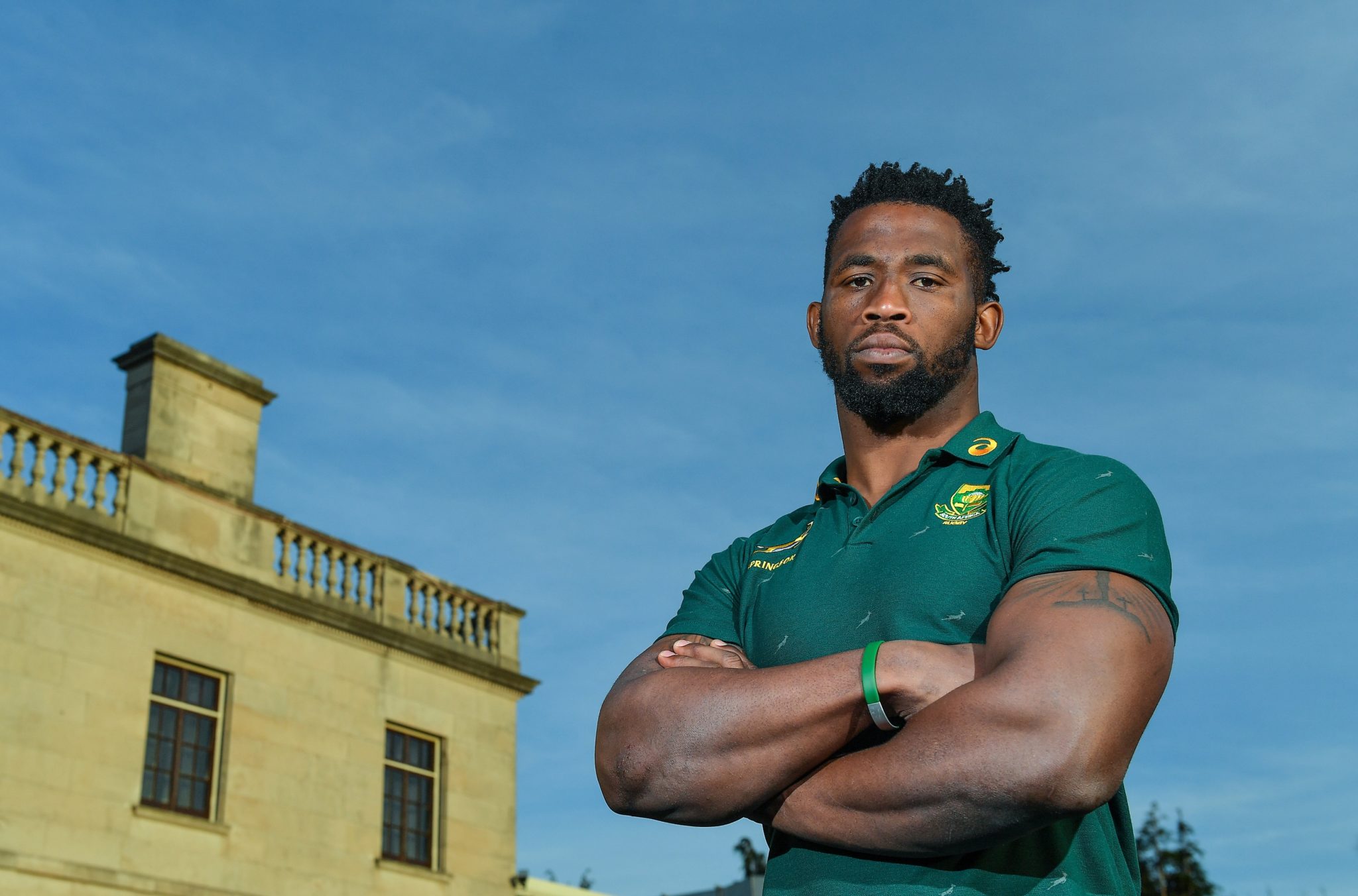Siya Kolisi’s elevation to the captaincy of the South African national rugby side drew global interest for what it symbolized but he admits it has been a tough road to earn his place as arguably the most iconic player in the country.
Kolisi comes from a poor Eastern Cape background and having faced a number of tests of his own strength and perseverance, has risen to be among the most inspirational sportsmen in South Africa.
The importance of having a first black captain of the Springboks, which during apartheid was seen as the preserve of the white minority and the political power they yielded, cannot be understated and as such Kolisi has been fielding interviews from around the globe, including American network HBO, with the United States certainly not a traditional market for rugby content.
It is perhaps hard for younger generations to understand why Kolisi being handed the role – and wearing the same number six jersey that Francois Pienaar and former South African president Nelson Mandela at the 1995 World Cup final – is such an important moment for South African rugby, but it is all about making the game more inclusive to all races.
Anecdotal evidence of South Africans who had never watched a rugby match before rushing home to be in front of their television sets for Kolisi’s first test leading the side against England at Ellis Park on June 9 were plentiful.
Loading...
Suddenly, there is a role model, an individual that many black South Africans can identify with, leading the team against another major rugby power.

Siya Kolisi of the Springboks during the Castle Lager Incoming Series 1st Test between South Africa and France at Loftus Versfeld Pretoria, South Africa. Photo via Getty Images
But Kolisi admits that it needed a stern few words from Stormers coach Robbie Fleck in 2016 to push him in the right direction after making little impact in the early part of his career as he battled with the demands placed on a professional rugby player.
“I had a conversation with the coach and he told me I had to grow up, basically,” Kolisi tells FORBES AFRICA. “Since that day, I haven’t looked back. It’s not been easy, it’s been tough. I won’t lie, I had to mature a lot.
“Obviously now, I’m a leader at home as well, I have got kids that I must be a role model for. I had to change a lot of my ways.”
Kolisi was raised by his grandmother in the Zwide township near the coastal city of Port Elizabeth, but his sporting prowess earned him a scholarship to the prestigious Grey High School and changed his fortunes.
“I’m grateful to her, because she did everything she could to give me a life. She would go without food so that I could eat,” he said recently at a press conference.
“I couldn’t speak a word of English when I first attended Grey High, but my mates taught me and helped me with homework.
“Obviously, coming from the township and not having a lot, and coming to Grey, your dreams start becoming much bigger because you have so much. You have everything you need to be whatever you want to be.
“I started dreaming big. When I was in the township, to think that I would be here, you don’t dream like that. That’s my dream one day, to change that mentality [for others].”
Kolisi was snapped up by the Western Province Rugby Union in 2010, lured to Cape Town by their then coach Rassie Erasmus, who is now in charge of the Springboks.
He was handed the captaincy of the Stormers at the start of 2017, but there were still some murmurs of discontent from skeptical sections of the public when he was given the reins of the Springboks in June, with critics saying it was a political appointment to appease the South African government and deliver transformation targets for South African rugby.
“I can’t control what other people think of me, I can only control what I can do on the field,” Kolisi says.
“I think it is a genuine appointment by coach Rassie because he is not that kind of a person. I have known him since I was 18 years old. We sat down and he was straightforward with me and that is how it is. You always know where you stand with him.
“Coach Rassie is not a politician and neither am I. I am a rugby player and all I want to do is to play well and inspire South Africans of all races.
“I know how much of a big deal this thing is for the country and it is a great thing for me to be a role-model. As a Springbok, it is not only about rugby, it’s the things you do off the field.”
Kolisi’s first series in charge ended in a 2-1 home success over England and with a World Cup in Japan looming next year, he could be selected to lead the side at that global showpiece tournament.
But with other players who were previously named as captain ahead of him returning from injury, such as loose-forward Warren Whiteley and lock Eben Etzebeth, the ball will be in Erasmus’ court to see if he will stick with his historic appointment.
– By Nick Said
Loading...
